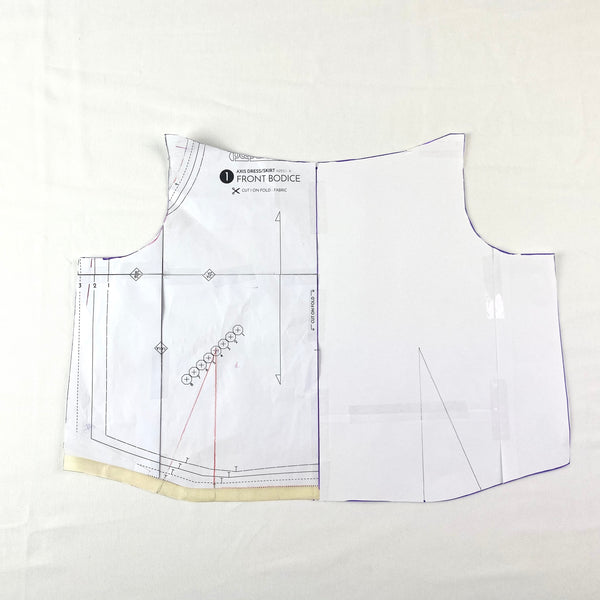Tip 1. Use a microtex needle. It has a thin, accurate point, perfect for fine fabrics. The size of the needle that you choose will depend on the weight of the fabric, however slippery fabrics usually tend to be a lighter weight so a 60, 70 or 80 is probably most useful.

Tip 2. Use spray starch. Test it first though, as it can leave a permanent mark. This will help to make the fabric stiffer and therefore easier to work with.
Tip 3. A walking foot can help to stop your fabric from slipping around. If you don't have one of these skip to tip 4.

Tip 4. Use a strip of tissue or pattern paper underneath your fabric. This helps to stabilise the fabric and reduces that chances of puckering. This is a great alternative to a walking foot.

Tip 5. Use a straight stitch plate. This helps to stop the fabric from getting sucked down into the feed-dogs which can happen with delicate, fine fabric. Remember to keep your machine on a straight stitch though otherwise you'll end up with a broken needle.

Tip 6. Make your stitches slightly smaller. A standard stitch length is around 2.5mm so try reducing your stitch length to around 2mm. As we often increase the stitch length when we are working with thicker, bulky fabrics it makes sense to decrease your stitch length when working with fine fabrics.

Tip 7. When cutting these fabrics it is more likely you will cut accurately if you don't cut on the fold. You can either do this by marking the centre of the pattern and flipping the pattern piece over, or alternatively mirroring the paper pattern piece ready for cutting.

Tip 8. Rayon embroidery thread can work really well when sewing slippery fabrics as polyester thread can increase the chances of puckering. Always test this on some scrap fabric first to get the tension right.

Tip 9. Use a fine pin such as a silk pin. This will reduce the risk of snagging your fabric.

Happy sewing!
